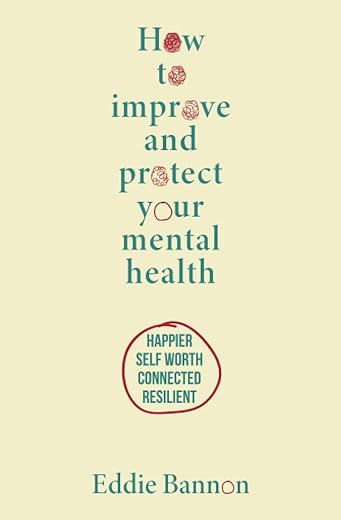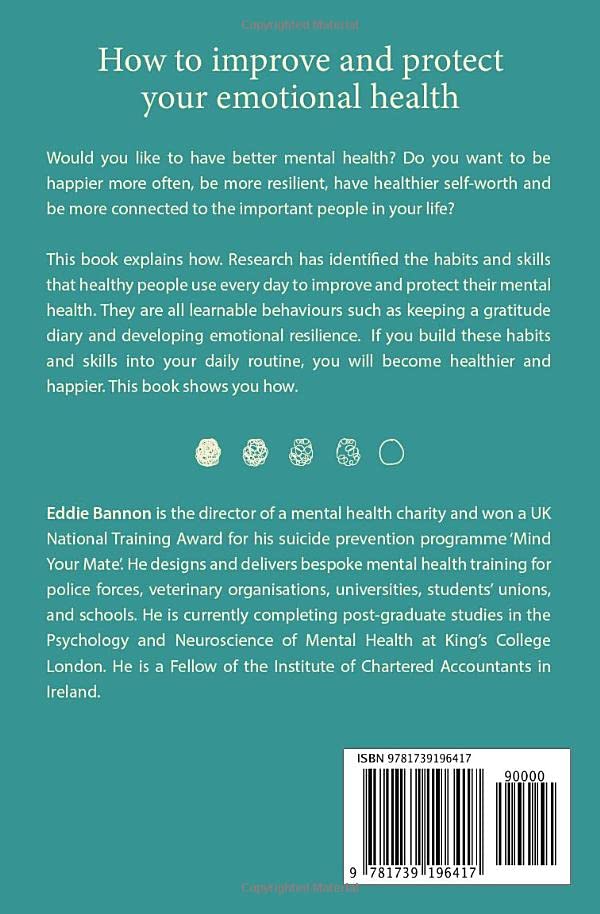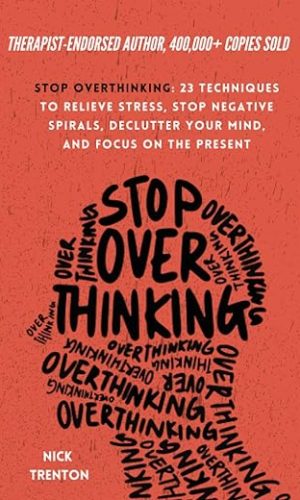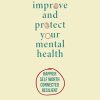How to improve and protect your mental health: Happier Self Worth Connected Resilient
£9.50
Psychologists think of your mental health as being on a continuum – at one end is mental illness, and at the other is mental health. At different times, depending on what is happening in your life, you are at different points on this continuum.
Many people sit in the middle of the continuum, neither mentally healthy nor mentally ill. The American psychologist Cory Keyes called this ‘lethargic mental health’. He also discovered that you could move along the mental health continuum to become mentally healthy, what he called having ‘flourishing mental health’.
If you have flourishing mental health, you experience far more positive emotions, feel better about yourself, feel more connected to others, and you are up to six times less likely to develop common mental disorders such as depression or anxiety than someone with languishing mental health.
This book explains how you and those closest to you can move from lethargic to flourishing mental health by introducing research-validated mentally healthy habits and skills into your daily life.
Habits such as keeping a simple gratitude diary have been found by research psychologists to be effective in increasing the number of positive emotions you experience. There are also skills you can learn, such as using the Optimistic Framework, which will positively impact your mental health.
This book is written to be both accessible to you, whilst also properly referencing the research that underpins each habit and skill.
Many people sit in the middle of the continuum, neither mentally healthy nor mentally ill. The American psychologist Cory Keyes called this ‘lethargic mental health’. He also discovered that you could move along the mental health continuum to become mentally healthy, what he called having ‘flourishing mental health’.
If you have flourishing mental health, you experience far more positive emotions, feel better about yourself, feel more connected to others, and you are up to six times less likely to develop common mental disorders such as depression or anxiety than someone with languishing mental health.
This book explains how you and those closest to you can move from lethargic to flourishing mental health by introducing research-validated mentally healthy habits and skills into your daily life.
Habits such as keeping a simple gratitude diary have been found by research psychologists to be effective in increasing the number of positive emotions you experience. There are also skills you can learn, such as using the Optimistic Framework, which will positively impact your mental health.
This book is written to be both accessible to you, whilst also properly referencing the research that underpins each habit and skill.
Read more
Additional information
| Publisher | Ballyholme Publishing (2 Nov. 2022) |
|---|---|
| Language | English |
| Paperback | 257 pages |
| ISBN-10 | 1739196414 |
| ISBN-13 | 978-1739196417 |
| Dimensions | 13.34 x 1.65 x 20.32 cm |











by Matthew Fox
Would recommend this book to anyone remotely interested in their mental health. Very easy read but backed up with the research. The seven habits are a no-brainer – I’ve just started to do them – I always thought self-criticism would drive me on – now I know it’s toxic and only making me stressed. I would never have considered doing a mindfulness meditation but the fact that there is evidence that it physically changes your brain convinced me to at least try it. The last bit about regular breathing, I watched the video, is great – I used it recently when I had a difficult customer on the phone – I focused on my breathing, and I did not get stressed or annoyed. Very useful.
by Loulou
I learnt an awful lot from this book and I have read many mental health books. I really liked that the book didn’t focus on recovering from depression or anxiety. I hadn’t read anywhere else about the things the things that move you away from depression and anxiety are different from the the things that move you towards being mentally healthy but it makes sense when you think about it.
I am starting to practise a daily act of kindness and it works. I’m making a greater effort to engage with people I casually meet every day like the staff in our local supermarket.
I’ve shown the book to my friend who isn’t ill but isn’t happy, she is going to try mindfulness and the gratitude diary.
by Catriona Mongey Jaffray
Found this a very easy read – it explains things in a combination of simple but scientific ways – the evidence is constantly referenced if you want to read it but doesn’t get in the road – the resources section at the end of each chapter are really great – I downloaded the Well-being scale and am starting to use it. Also loved the videos referred to in the resources – Brene Brown, Alan Watkins and Tali Sharot are brilliant.
Never really understood pessimism – I am an optimist but maybe sometimes, when I’m under pressure, I need to be thinking of what’s the evidence – very useful. I already used a gratitude diary but never understood why it worked – I am going to start practising mindfulness – and shrink my amygdala!!
by Peter Callaghan
I really enjoyed reading this book, it is very clear and understandable and has links to the original research that says these things will work. I have started using the gratitude diary and also the 7-minute mindfulness meditation recommended. I do think the gratitude diary has started to work, I am appreciating positive things more often without trying. I also watched some of the videos recommended, really excellent videos and a great way to back up the information in the book – it was very interesting to read about someone’s research and then watch them deliver a TEDx talk on YouTube.
I have started to introduce the seven habits into my normal day – I find myself thanking people in my emails more often without thinking about it. I have also realised that I am a bit of a pessimist, so I am finding the optimistic framework very useful. Can really recommend reading this book.
by Gerrie
This book is full of very clear, precise explanations and recommendations which I will be following. Didn’t fully appreciate the difference between mental illness and mental health until I read this. I have downloaded the gratitude app and intend to practise a lot more self compassion, I’ve finished with the habit of self-criticism! A lot of practical steps to take! Has just the right amount of theory and an abundance of recommendations to act on. I have also recommended this book to fellow professional psychologists.
by Gault Calwell
Reading this book really helped me develop and understanding of stress- I now understand you can’t avoid all stress! It’s natural but what is important is how you control your actions when you are stressed. Strongly recommend this book- for everybody, not just people who are stressed.
by Michelle O’Mahony
Very clear explanation of the things you can do every day to look after your mental health.The four steps to being resilient really made sense.
by Deirdre O’ Mahony
I had a friend who suffered from imposter syndrome and didn’t know why she felt that way – this book would definitely have helped her. Have started using a gratitude diary – it is already helping me appreciate more good things in life – things get so hectic sometimes it really is good to write down the positives – there are so many when you just take the time to think of them.
I didn’t really understand the difference between self-confidence and self-esteem – really helpful. I am planning a hedonic walk shortly because I deserve it!
Loved the resource links – some of the videos are brilliant